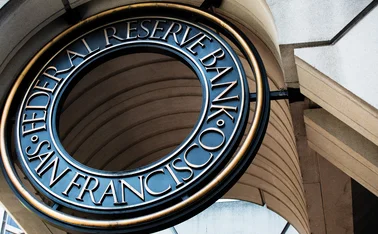
Han Seung-soo: financial opening and the renminbi
Now is the time to remodel the international financial system

What does China's financial opening and the internationalisation of its currency mean for the Bretton Woods order?
I have a very strong view on the governance of international financial institutions. The Bretton Woods system born 70 years ago no longer reflects the global economic balance of power and, moreover, has become increasingly outdated as a result of recent financial innovation. I therefore think it is time to drastically overhaul the existing international financial architecture. This process will have to take into account China's financial opening and the internationalisation of the renminbi.
What is the significance of the renminbi's special drawing rights (SDR) inclusion?
It is very big news. At the third plenum of the Fourteenth CPC Central Committee in 1993, China set the goal of gradually making the renminbi a convertible currency. In 1996, China achieved current account convertibility and it will seek to achieve capital account convertibility. China has come a long way from that time. It is the second largest economy in the world as well as the largest exporter and manufacturer. So it is natural to expect the renminbi would be used for international trade, finance and investment and serve as a reserve currency.
What does renminbi internationalisation mean for China domestically?
Domestically, renminbi internationalisation has been a catalyst for necessary financial reforms. A sound, well-functioning financial infrastructure is a prerequisite for currency to be used internationally for various purposes. As renminbi internationalisation inevitably involves opening of the capital account, it is very important to safeguard the financial system through the right sequencing of reforms to avoid potential risks during the internationalisation process. Domestic financial sector reform should proceed first. Appropriate regulatory and supervisory frameworks should be put in place. Then the exchange rate should be allowed to move freely, with monetary policy used to achieve domestic policy goals. Finally, the capital account should be entirely opened as a last step to allow the free flow of capital across borders.
What does it mean for other countries?
Renminbi internationalisation will contribute to improving the international monetary and financial architecture. We saw some side effects of the US dollar-dominant currency system during the global financial crisis. If the renminbi can serve as a supplementary international currency, backed by China's economic and financial stability, it will help stabilise international monetary and financial architecture and improve the global financial safety net, especially for emerging and low income markets.

The use of renminbi in cross-border payments and its status as an actively traded currency in global financial markets have grown rapidly in recent years
Han Seung-soo, former prime minister, Republic of Korea
Where have you seen the biggest impact of renminbi internationalisation?
The use of renminbi in cross-border payments and its status as an actively traded currency in global financial markets have grown rapidly in recent years. About 20% of Chinese trade and 25% of other current account transactions, such as services income and dividend payments, are now settled in renminbi. Moreover, as of 2014, about 30% and 16% of inward and outward foreign direct investment transactions were settled in renminbi, up from 13% and 4% in 2012. Also, as part of broader reforms aimed at moving China onto a sustainable growth path and building the international market for renminbi securities, Chinese authorities have gradually opened the capital account while introducing measures to strengthen the domestic financial system and expand cross-border payment infrastructure. Offshore deposits, meanwhile, now amount to about 2.5 trillion yuan.
What is the next step?
Since 2009, renminbi internationalisation has primarily been focused on trade settlement and investment but gradual opening of the capital market is a very important part of the process. Capital account transactions in China are generally subject to restrictions, preapprovals and quotas. However, as a part of a broader financial reform agenda, the authorities have been gradually easing restrictions, widening China's access and increasing quotas to capital flows over time. There are several underlined policy measures promoting renminbi internationalisation in China. One is the gradual opening of the capital market. Capital account transactions in China are generally subject to restrictions, preapprovals and quotas. However, as a part of a broader financial reform agenda, the authorities have been gradually easing restrictions, widening China's access and increasing quotas to capital flows over time. Second is improving cross-border transactions through introducing cost-associated regulatory approval, where regulations have already shifted from pre-approval to registration and export monitoring investment transactions in capital account. It is expected that capital account liberalisation will proceed along a path of managing the convertibility going forward. Third, foreign central banks, international financial institutions and sovereign wealth funds are now allowed to trade foreign exchange products directly including spots, forwards, swaps and options in China's inter-bank market without any quota restrictions. In addition, non-resident interest in the renminbi as a funding and investment currency has been helped by specific steps to allow renminbi funds to flow onshore.
How important are domestic reforms in driving internationalisation?
As part of a broader structural reform agenda pushing China towards a safe and sustainable growth path, the authorities have initiated financial reforms aimed at achieving more market-based pricing, better alignment of risks with returns and greater efficiency of allocation. During the past decade, the People's Bank of China has gradually liberalised interest rates. Lending rates were completely liberalised in 2013 and the central bank eliminated the final administrative interest rate in October 2015. A nation-wide deposit insurance programme was introduced in May 2015, covering 99.6% of depositors and more than 40% of total deposits. During the past two or three years, authorities have taken steps to rein in shadow banking through tightened regulation and supervision of securities and trust companies, activity in the inter-bank market and insurance of high yield wealth management products. These are the kind of measures taken by Chinese authorities that contributed, for instance, to the willingness of the International Monetary Fund to include the renminbi in its basket of SDR currencies in 2015.
Han Seung-soo is co-chair of the IFF and former prime minister of the Republic of Korea
Only users who have a paid subscription or are part of a corporate subscription are able to print or copy content.
To access these options, along with all other subscription benefits, please contact info@centralbanking.com or view our subscription options here: http://subscriptions.centralbanking.com/subscribe
You are currently unable to print this content. Please contact info@centralbanking.com to find out more.
You are currently unable to copy this content. Please contact info@centralbanking.com to find out more.
Copyright Infopro Digital Limited. All rights reserved.
As outlined in our terms and conditions, https://www.infopro-digital.com/terms-and-conditions/subscriptions/ (point 2.4), printing is limited to a single copy.
If you would like to purchase additional rights please email info@centralbanking.com
Copyright Infopro Digital Limited. All rights reserved.
You may share this content using our article tools. As outlined in our terms and conditions, https://www.infopro-digital.com/terms-and-conditions/subscriptions/ (clause 2.4), an Authorised User may only make one copy of the materials for their own personal use. You must also comply with the restrictions in clause 2.5.
If you would like to purchase additional rights please email info@centralbanking.com








